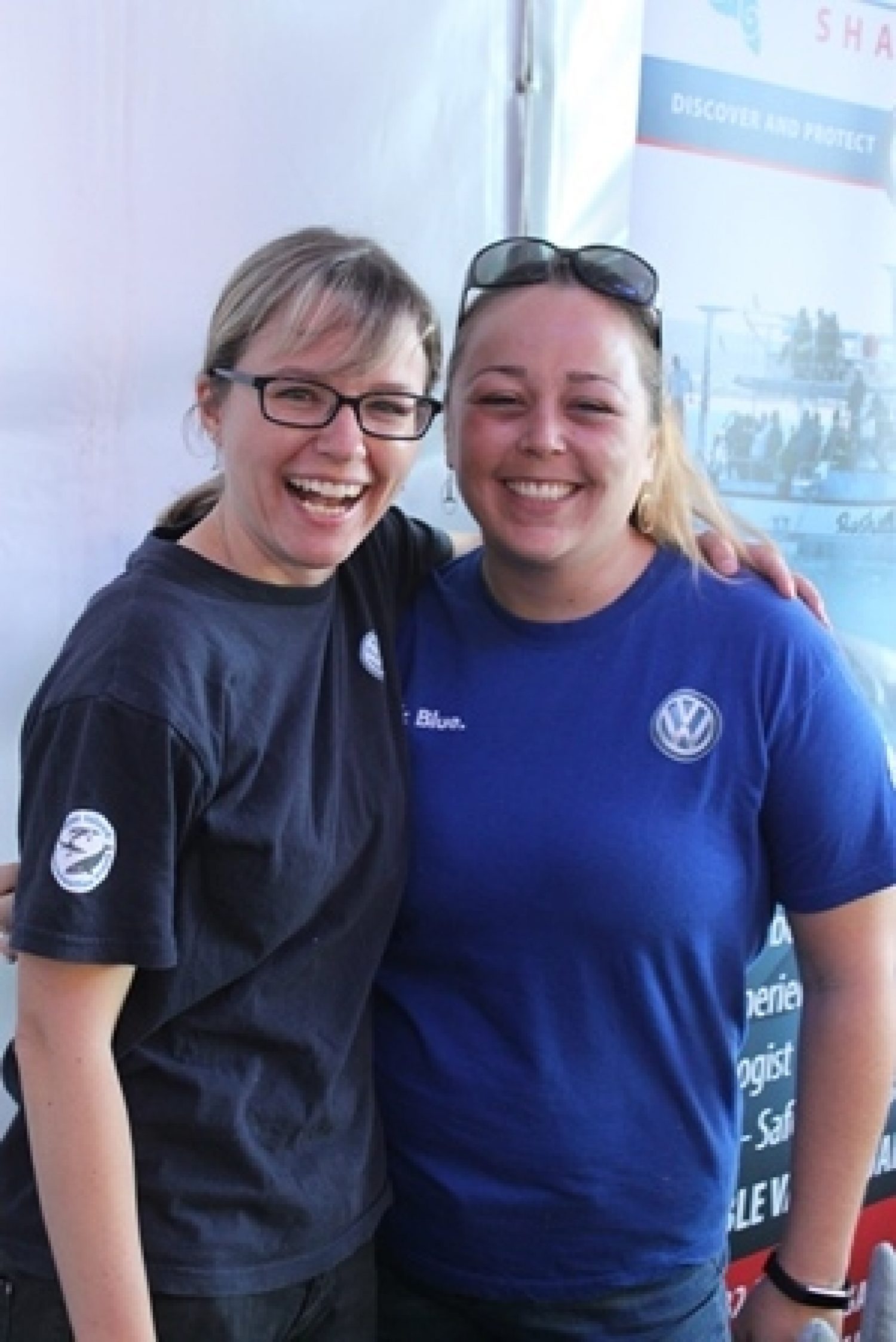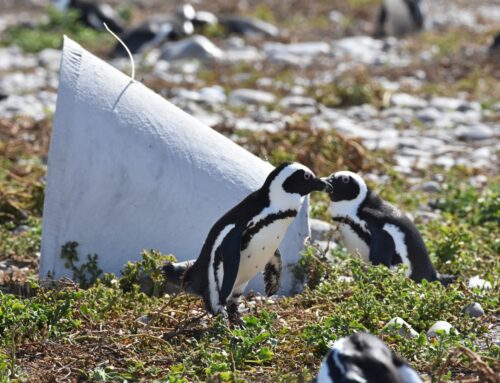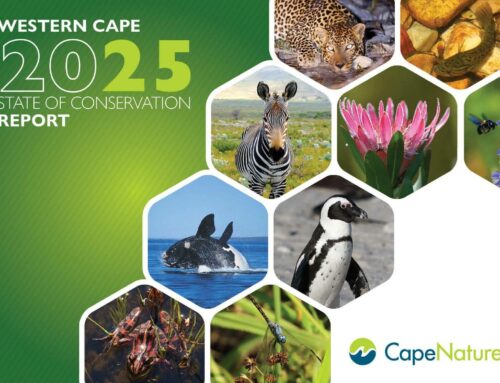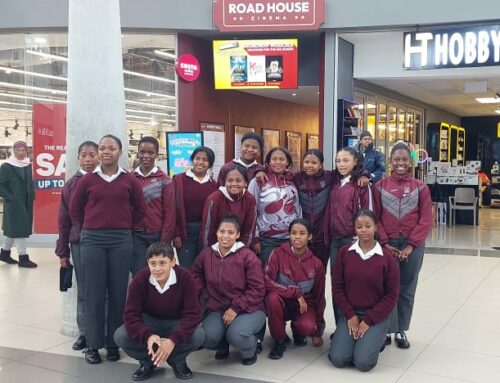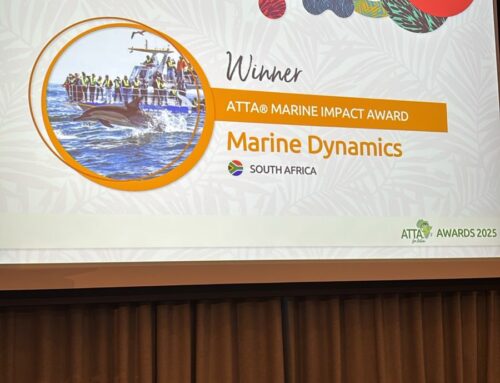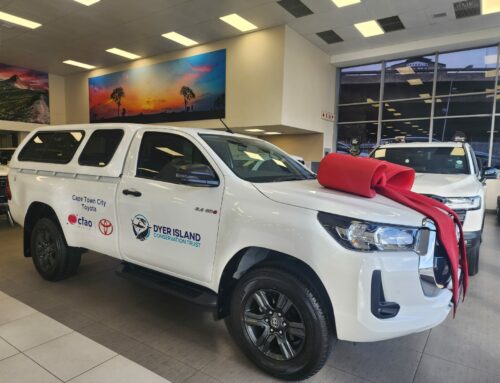March 22, 2018 Petra Neveceralova
Working with whales and protecting them was my dream since I was a little girl. I can´t say how much I am honoured to work with Dyer Island Conservation Trust as a PhD student.
I was born in the middle of Europe, in the landlocked country of Czech Republic. However, I am so lucky to have a great mom that has always supported me. In 2005 she took me on an incredible journey to Africa. For the first time I visited South Africa and the day when I celebrated my 17th birthday, I saw my first whale. It was a humpback whale, a mother with a little whale baby. I will never forget how amazed I was in the presence of the whale, and I still feel that whenever I am close to these magnificent animals.
I was very lucky to meet Mr. Wilfred Chivell in Gansbaai, a small town on the coast of Western Cape, South Africa. He was the owner and skipper of Whale Whisperer, a whale watching boat of his company Dyer Island Cruises. He invited me on his boat and for the first time I met southern right whales. Different from humpbacks in their behaviour, so friendly and relaxed in the water. I completely fell in love with these gentle giants. The moment I saw them I decided to study these whales and help protect them and conserve their environment.
Time went on and the Dyer Island Cruises company grew bigger and bigger and I volunteered for Wilfred several times. During that time I also managed to get my bachelor degree and then masters degree in general biology with the support of the Dyer Island Conservation Trust, a non-profit founded by Wilfred. They provided me with data they collect during whale watching and I did some research on whale breaching and whale distribution in comparison with wind.
After I finished my masters, the question was what to do next. Nobody in the Central and Eastern Europe studied whales at that time and abroad universities were too expensive for me. But I was lucky again when I met Professor Pavel Hulva, Ph.D. from Charles University in Prague, Czech Republic. He is a leader of a group that studies wolf genetics and they use all data in conservation. When we met, he admitted that he always wanted to study whales. To use genetic data in conservation is an awesome modern research project with huge conservation impact – perfect for me! That was the very beginning of my PhD project that we named “Conservation genetics of southern right whale” and the Dyer Island Conservation Trust and Dyer Island Cruises became the most important partners.
As the PhD project is built on genetic data, we need samples from southern right whales. After certain whale behaviour like breaching, lobtailing or mating, pieces of whale skin can be found floating on the surface. This skin is perfectly suitable for the DNA extraction. Also from the whale faeces, sometimes found around the boat during whale watching, some DNA can be extracted. This is called “non invasive” sampling as the whale does not even know that we “sample” her. In cooperation with Dyer Island Cruises crew we collect all these samples and this has become one of the most effective method of getting DNA without disturbing the animals at all. As you can see, it is in high contrast with Japanese whalers, who claim that they must kill the whale for the genetic sampling and research.
In the end, what do we do with the DNA? DNA, or deoxyribonucleic acid, is an information molecule that is present in every cell of every organism and it can be called “a plan of a life” as every protein molecule in the body is synthetized according to the DNA plan. You can obtain a variety of information from the DNA such as where the animal comes from, if it is male or female, if it has any genetic disease and you can track its parents, sibling or its offspring.
There are several goals for my PhD project. First of all, we would like to describe the population genetics of the South African right whales. Based on the population structure, we can guess the number of whales in the area, follow the gene flow and see if the same whales return to the same bays every year. Then we study immune genes – In a healthy population, it is necessary to have a certain variability among immune genes to ensure that the animals can resist any new virus or pathogen, so it is our goal to check the variability among local population. All this data will be used in conservation as the right whales went through so called “bottleneck effect”. This means that due to intensive hunting in the past several centuries their numbers dropped dramatically and this always means the drop in genetic variability, which is threatening for the population. It is important for us to know the genetic structure of our whales so we can protect them more effectively.
Thanks to the Dyer Island Conservation Trust and Dyer Island Cruises, important research can be done on South African right whales. Their motto “Discover and Protect” shows their dedication to the conservation and knowledge I am lucky I to work with them to protect our beloved whales in the bay.
For more information about the PhD project please go to


